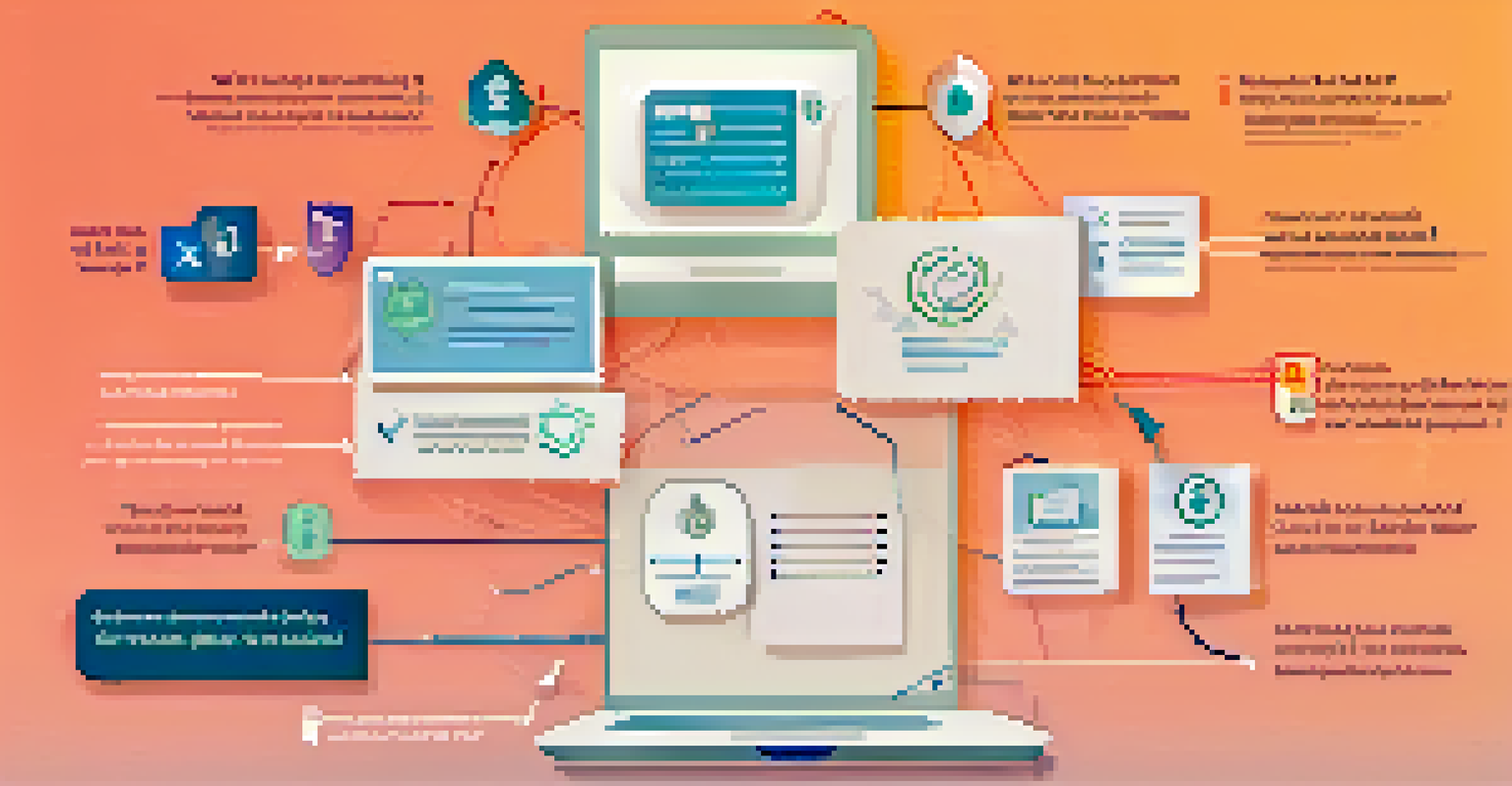The Importance of Privacy in the Digital Age Explained

The Digital Landscape: A Double-Edged Sword
In our fast-paced digital world, technology connects us like never before. However, this connectivity comes with its own set of challenges, particularly concerning privacy. While we enjoy the benefits of social media, online shopping, and instant communication, our personal information is often at risk of being misused.
Data is the new oil, but like oil, it must be refined to be useful.
For instance, think about how many apps require access to your location or contacts just to function. This is a common practice, but it raises questions about how much of our personal data is being collected and how it’s used. The reality is that every click, like, or share can leave a digital footprint that may be tracked by companies seeking to monetize our information.
This double-edged sword of connectivity means we must be vigilant about our privacy. Ensuring your data is protected is no longer just a personal preference but a necessity in navigating today’s tech landscape.
Understanding Data Privacy: What Does It Mean?
Data privacy refers to the proper handling of sensitive information, focusing on how data is collected, stored, and shared. It’s not just about keeping your secrets safe; it's about the right to control your personal information. When you share your data online, you should know who has access to it and how it will be used.

Consider the last time you signed up for a new service. Did you read the privacy policy? Most people don’t, and that’s where problems can arise. Without understanding the terms, you might unknowingly give away rights to your data, which can be used for targeted advertising or even sold to third parties.
The Importance of Data Privacy
Understanding how personal data is collected and used is crucial for individuals to maintain control over their information.
Thus, understanding data privacy is critical. It empowers you to make informed decisions about what you share and helps you take control of your digital footprint.
The Risks of Ignoring Online Privacy
Ignoring online privacy can lead to significant consequences, ranging from identity theft to financial loss. When your personal information is exposed, malicious actors can exploit it for various nefarious purposes. For example, a compromised email can lead to phishing attacks, where scammers impersonate you to gain access to your accounts.
In the digital age, privacy is not something that can be negotiated; it is a fundamental human right.
Moreover, there’s the risk of data breaches, where companies fail to protect user data from hackers. High-profile breaches have shown us that no one is immune, and the fallout can affect millions. The loss of trust in companies can also tarnish their reputation and lead to legal consequences.
Ultimately, the risks associated with neglecting privacy are real and pressing. It’s essential to take proactive steps to safeguard your information, whether through strong passwords or privacy-focused tools.
Protecting Your Privacy Online: Simple Steps
Protecting your privacy online doesn’t have to be complicated. Start by using strong, unique passwords for each of your accounts, and consider a password manager to help keep track of them. This simple step can prevent unauthorized access to your accounts.
Next, enable two-factor authentication (2FA) wherever possible. This adds an extra layer of security by requiring a second form of verification, such as a code sent to your phone. It’s like having a double lock on your front door; it makes it much harder for intruders to get in.
Risks of Neglecting Online Privacy
Ignoring online privacy can lead to serious consequences, including identity theft and financial loss.
Finally, be selective about the information you share. Before signing up for a new service, consider whether the benefits outweigh the privacy trade-offs. By taking these steps, you can significantly enhance your online privacy.
The Role of Legislation in Protecting Privacy
Legislation plays a crucial role in protecting privacy rights in the digital age. Laws such as the General Data Protection Regulation (GDPR) in Europe set standards for how companies collect and handle personal data. These regulations aim to give individuals more control over their information and promote transparency in data practices.
However, not all countries have such robust protections. In some regions, privacy laws are minimal or nonexistent, leaving consumers vulnerable. This disparity highlights the importance of advocating for stronger privacy laws globally, as data knows no borders.
Ultimately, effective legislation can help create a safer digital environment. By holding companies accountable for their data practices, we can ensure that privacy is respected and protected for everyone.
The Importance of Digital Literacy for Privacy
Digital literacy is becoming increasingly essential in understanding and navigating privacy issues. It encompasses the skills needed to use technology effectively, including recognizing potential privacy risks. For instance, knowing how to adjust privacy settings on social media can help safeguard your personal information.
Consider how often you see news stories about data breaches or scams. A digitally literate individual can identify red flags and take preventative measures, such as avoiding suspicious links or sharing personal information with unknown sources. This awareness is vital in a world where threats are constantly evolving.
Legislation's Role in Privacy
Effective privacy laws are essential for holding companies accountable and ensuring consumer data protection in the digital age.
Therefore, enhancing digital literacy is key to empowering individuals to take charge of their privacy. By equipping ourselves and others with the necessary skills, we can create a more informed and secure online community.
The Future of Privacy in an Ever-Changing Digital World
As technology continues to advance, the conversation around privacy will only grow more complex. With innovations like artificial intelligence and big data analytics, the potential for data misuse is significant. This necessitates ongoing discussions about how to balance technological progress with the need for privacy protection.
Moreover, as consumers become more aware of privacy issues, there’s a growing demand for transparency from companies. Businesses that prioritize ethical data practices and prioritize user privacy will likely gain a competitive advantage in the future. This shift can lead to a more responsible digital ecosystem.

In conclusion, the future of privacy hinges on how we navigate these challenges together. By advocating for stronger protections and staying informed, we can work towards a digital landscape that respects individual privacy while embracing innovation.